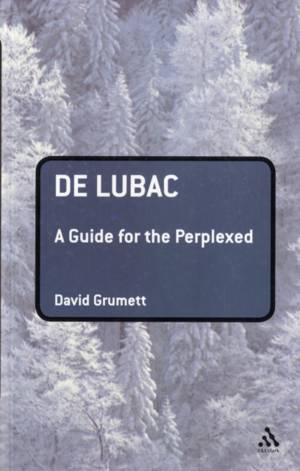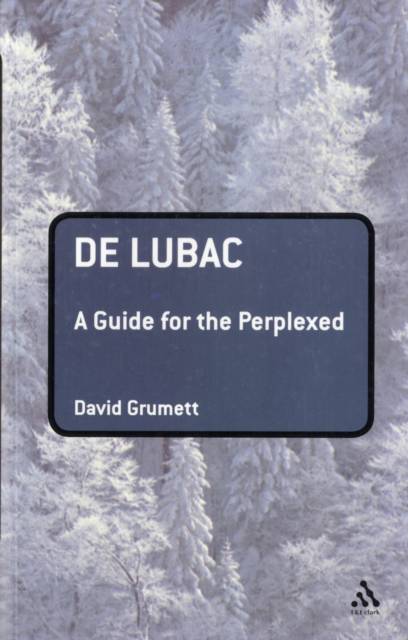
- Afhalen na 1 uur in een winkel met voorraad
- Gratis thuislevering in België vanaf € 30
- Ruim aanbod met 7 miljoen producten
- Afhalen na 1 uur in een winkel met voorraad
- Gratis thuislevering in België vanaf € 30
- Ruim aanbod met 7 miljoen producten
Zoeken
€ 44,95
+ 89 punten
Omschrijving
Henri de Lubac is a dominating figure in the renewal of catholic theology in the twentieth century, opposing neo-Thomist orthodoxy with a pluriform and historical notion of tradition based on the creative reappropriation of patristic sources. De Lubac's adult life encompasses the whole of what Eric Hobsbawm has called the 'short' twentieth century, extending from the outbreak of the First World War in 1914, in which he fought, to the collapse of the Soviet Union in 1991, the year in which he died. De Lubac commenced his theological training in exile in England, played a key role in the nouvelle théologie associated with the Jesuit scholasticate at Fourvière in Lyons, assumed a leading part in catholic resistance to the Vichy regime, was silenced in the aftermath of Humani generis in the 1950s, rehabilitated as a peritus (theological adviser) to the Second Vatican Council, and raised to the cardinalate in 1983. This introduction to De Lubac will therefore also provide an overview of the whole of twentieth century French catholic theology. De Lubac's work extends beyond narrow theological boundaries. Because of this breadth of interest, some areas of his work, such as his political theology and study of Buddhism, have previously received little attention. In bringing figures from other intellectual disciplines into dialogue with Christian scripture and tradition, however, De Lubac reveals the theological significance of their positions as well as demonstrating the insufficiency of their ambivalent attitudes to faith.
Specificaties
Betrokkenen
- Auteur(s):
- Uitgeverij:
Inhoud
- Aantal bladzijden:
- 200
- Taal:
- Engels
- Reeks:
Eigenschappen
- Productcode (EAN):
- 9780826493156
- Verschijningsdatum:
- 3/11/2007
- Uitvoering:
- Paperback
- Formaat:
- Trade paperback (VS)
- Afmetingen:
- 137 mm x 217 mm
- Gewicht:
- 263 g

Alleen bij Standaard Boekhandel
+ 89 punten op je klantenkaart van Standaard Boekhandel
Beoordelingen
We publiceren alleen reviews die voldoen aan de voorwaarden voor reviews. Bekijk onze voorwaarden voor reviews.











